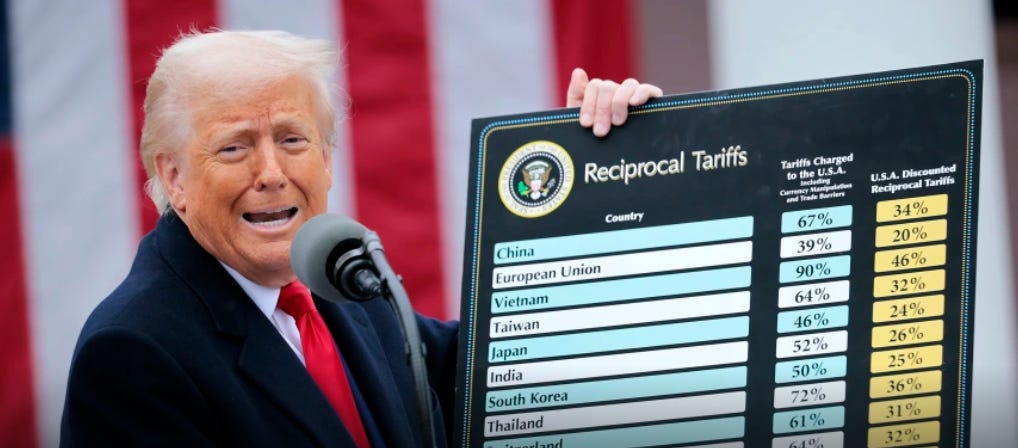Liberation or Lockdown?
5mins read: Trump’s sweeping new tariffs mark a turning point in his economic nationalism — but will the cost land on American doorsteps?
Hey Small Biters,
Some political moves are subtle. Others come with branding.
The Trump administration rolled out a sweeping new trade policy dubbed “Liberation Day” — a name that sounds like a holiday, but might feel more like a hangover once the economic effects settle in. With it came major tariffs: 20% on imports from the European Union and a whopping 34% on Chinese goods. Framed as a battle cry for American independence, the move marks an aggressive return to the playbook of protectionism.
But the name carries a quiet irony. While the White House pitches this as liberation from global dependence, many economists — and some voters — are wondering whether it might trap the country in a cycle of inflation, price hikes, and retaliation.
This isn’t the first time tariffs have been used as a political tool. But the scale and scope of this round feel different. Trump isn’t just targeting specific industries — he’s sending a message to the world: America First, again. The administration argues this is about rebalancing the trade deficit and protecting U.S. workers. Yet history has shown that broad tariffs often lead to broader consequences — higher prices at home, strained relationships abroad, and global economic instability.
Keep reading with a 7-day free trial
Subscribe to Small Bites to keep reading this post and get 7 days of free access to the full post archives.





